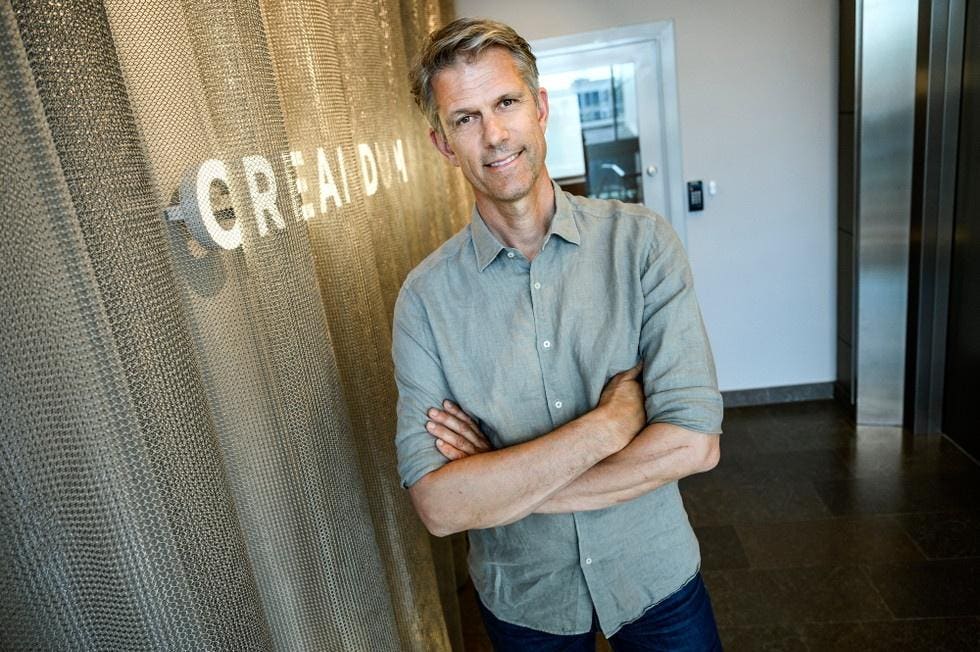The future is looking bright for European technology startups. So bright, in fact, that the continent is poised to rival or even surpass the U.S. as an innovation superpower.
That’s the view of a new report published by VC, Creandum and startup intelligence company Dealroom. According to the study, the evolution of the tech ecosystem over the last twenty years or so has brought Europe to a point where “all the ingredients” are in place to enable the continent to establish a dominant position, especially in technology sectors such as fintech, digital health, enterprise software and climate solutions.
So what are the factors underpinning the report’s optimism? I spoke to Creandum General Partner, Staffan Helgesson to find out.
Creandum was an early backer of Spotify, a European company that has established itself as a clear leader in its chosen market. In addition, Creandum has a healthy selection of unicorns in its investment portfolio. These include Depop, iZettle and Pleo.
So, from that perspective, Creandum is clearly seeing a considerable amount of European success, but the report is predicting something more. After two decades of playing catchup, with the U.S. and China, Helgesson says there is a real opportunity to become a world leader.
Population Mattters
He cites she sheer number of people living in Europe as a factor. “Europe has a population of around 600 million. In the US it’s about 340 million,” he says. The logic here is that a greater density of population inevitably means that Europe has a deeper well entrepreneurial and technical talent to draw upon.
Then there is migration. While Europe is an immigration magnet, as Helgesson sees it, the U.S. is becoming less welcoming. “Historically, the U.S. has been very good at immigration but that is not quite so true today.”
Equally important, the report notes that Europe now has a legacy of startup creation that will play out into the future. “Twenty years ago we only had a few startups,” says Helgesson. “Today we have something.”
He cites Spotify as playing a part in creating new vistas for Europeans. “Early on, Daniel Ek (the Spotify founder) decided he wanted the company to be based in Europe. Spotify changed the mindset,” he says.
Counting Unicorns
And today, Europe as a whole (not just the European Union) can boast unicorns in 25 countries and 65 cities. Indeed, the report claims the continent now has the world’s highest density of $1 billion companies.
One result of this has been a new generation of entrepreneurs who cut their teeth working in the first wave of successful scaleups and who have now started their own companies. Helgesson says more that 60 startups have been founded by veterans of its portfolio companies Klarna and Spotify.
Accessing Finance
The report says Europe is also enjoying the benefits of increased VC funding. As things stand, Europe accounts for about a third of early stage global investment.
Now it has to be said that there are still concerns about the investment climate. Last month I spent a couple of days at an EU-sponsored conference – Grow Digital 23 – in Brussels where policymakers seemed genuinely worried that much of the later stage capital flowing to companies was coming from the U.S. and Asia, raising fears that the businesses concerned would ultimately up sticks and establish headquarters elsewhere.
Nevertheless, Helgesson is optimistic about the investment climate. In particular, he points to changing attitudes in the VC markets. Funds stay open for longer. “In the top tier is 17-18 years,” he says. “Creating value takes time.”
And again, he detects changing attitudes. In the past, VCs would look for early exits and, frankly, so would founders. Now, there is a greater willingness to go on a longer journey.
“In the early days, nobody had made much money,” says Helgesson. “So, it was more tempting to sell early. Over time, you see more entrepreneurs and founders making money. There was no longer the pressure to sell.”
The report does identify a number of hot sectors – notably the aforementioned climate, health, enterprise software and fintech – but Helgesson is cautious about becoming overly focused on industries that are attracting attention at any given time. He says, the opportunities stem from talented founders not sectors per se.
Nevertheless, he cites the importance of climate tech, which is developing rapidly in Europe, partly because the regulatory framework – for instance, the net zero agenda – is creating opportunities. The impact of policy can be profound. Helgesson points to a decision made in Sweden 20 years ago to move away from dependence on Russian gas for both environmental and political reasons. This created opportunities for those who could provide alternatives.
There are still challenges. For instance, for ambitious scaleups, the ideal endgame would be a stock market listing. Helgesson says listed companies become aircraft carriers. They make acquisitions and grow the sector. Arguably more needs to be done to make tech innovators more attractive to more mainstream investors.
Europe’s policymakers are worried about missing the technology boat, fearing that in the brave new world of AI, quantum and other deeptech startups, the continent will lose out to the U.S., despite an impressive research base. The Creandum/Dealroom report suggests there is actually cause for optimism.
Read the full article here





